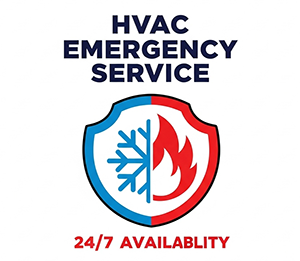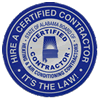Call: 256-686-3444
 When your air conditioning decides to throw in the towel at 2 AM on a sweltering July night, or worse, when your furnace conks out during an unexpected February freeze, you’re not just dealing with discomfort. You’re facing a genuine emergency that can turn your home into either a sauna or an icebox pretty quickly.
When your air conditioning decides to throw in the towel at 2 AM on a sweltering July night, or worse, when your furnace conks out during an unexpected February freeze, you’re not just dealing with discomfort. You’re facing a genuine emergency that can turn your home into either a sauna or an icebox pretty quickly.
At Southeastern Mechanical Services, we’ve been fielding those panicked midnight calls for years now, and frankly? We’ve seen it all. Frozen heat pumps that look like igloos, AC units that sound like freight trains, and furnaces that decide Christmas morning is the perfect time to quit working.
The Reality of HVAC Emergencies in North Alabama
Most people underestimate just how quickly things can go sideways with heating and cooling systems. You’ve probably noticed how your equipment seems to pick the absolute worst moment to fail – right before a holiday weekend, during extreme weather, or when you’ve got family visiting from out of town. It’s not Murphy’s Law; it’s Alabama weather reality.
Our emergency line stays pretty busy during peak seasons, especially those brutal summer stretches and those surprising cold snaps we get in winter. Here’s what we’ve learned over the years: a surprising number of these emergencies could’ve been prevented with basic preparation. But sometimes? Equipment just decides it’s done, no matter how well you’ve maintained it.
What Actually Constitutes an HVAC Emergency?
Not every hiccup requires our emergency team to roll out at midnight. But these situations definitely do:
- Complete system failure during extreme temperatures (we’re talking 90+ degrees in summer or below 32 in winter)
- Electrical issues causing sparks, burning smells, or tripped breakers that won’t reset
- Gas leaks from furnaces or gas heat pumps (you’ll smell rotten eggs – get out and call the gas company first)
- Frozen coils or pipes that aren’t thawing after shutting down the system
- Strange noises that sound like metal grinding, banging, or squealing – trust your instincts on this one
- No heat when outside temperatures drop below freezing
The borderline cases? When your system’s struggling but still pushing some conditioned air, it might hold until morning. We’ll help you make that call when you ring us up.
Our 24/7 Emergency Response: What Actually Happens
When you dial our emergency line, things move pretty efficiently. During business hours, you’re talking directly to our team. After hours, your call goes to our professional answering service – always a real person, never recordings. They’ll vet your situation and get your agreement on the emergency service fee before one of our technicians calls you back to arrange the visit.
Here’s the real process:
First Few Minutes: Phone Troubleshooting
We’ll walk through basic troubleshooting over the phone. Sometimes it’s something simple – a tripped breaker, a clogged filter that’s choking your system, or a thermostat that’s gone haywire. You’d be amazed how often we can get people back up and running without a truck roll.
Assessment Call
If phone troubleshooting doesn’t solve it, we’ll have a certified technician headed your way as quickly as possible. During regular hours, we can usually get there pretty fast. After-hours takes a bit longer, obviously, but we’re bringing diagnostic equipment and replacement parts, not just a toolbox and hope.
The Diagnosis
Our tech will spend some time figuring out what’s wrong before touching anything. We’ve learned that rushing leads to bigger problems down the road, and nobody wants to pay for the same repair twice.
Emergency Pricing – Let’s Be Transparent
Nobody likes surprises on their credit card statement, especially during emergencies. Emergency service calls do cost more than regular scheduled maintenance. That’s just the reality of having certified technicians available around the clock with fully stocked trucks.
We’ll always give you the exact pricing before we start any work. Parts are additional, obviously, but we carry the most common failure items on every truck so there are no surprise trips to the supply house on your dime.
How to Prepare Before the Emergency Hits
Smart homeowners don’t wait for disaster to strike. And honestly, a little preparation can save you hundreds of dollars and a lot of misery, whether we’re talking about staying cool in August or staying warm in January.
The Emergency Kit Every Decatur Home Needs
Keep these items in an easily accessible spot:
- Replacement air filters (buy them in bulk at the hardware store)
- Basic tools: screwdriver set, flashlight, digital multimeter if you’re handy
- Your HVAC system’s manual and warranty information
- Our emergency number programmed in your phone: 256-686-3444
- A backup plan, whether that’s space heaters, window units, fans, or knowing which friends have guest rooms
The 15-Minute Seasonal Check
Before each heating and cooling season, spend a quarter-hour doing these basic checks. Most people skip this, then wonder why their system fails during the first heat wave or cold snap:
- Change that filter – seriously, this prevents a lot of emergency calls
- Check your electrical panel for any loose connections or tripped breakers
- Clear debris from around your outdoor unit (2-3 feet clearance minimum)
- Test your system before you actually need it. Run heat in fall, run cooling in spring
- Check your thermostat batteries if it uses them
And here’s something most HVAC companies won’t tell you: if your system is getting up there in years and hasn’t been serviced recently, consider having us out for a preventive check before peak season. It costs less than an emergency call and could prevent that 2 AM breakdown.
What to Do When Your HVAC System Fails
Step 1: Don’t Panic (easier said than done, we know)
Turn off your system completely. Don’t keep running it if it’s not heating or cooling properly. You might cause more damage.
Step 2: Basic Troubleshooting
- Check your breaker box
- Look at your air filter – if you can’t see through it, replace it
- Make sure your thermostat is set correctly and has fresh batteries
- For heating systems, check that your pilot light is still lit (if applicable)
Step 3: Call Us
If those steps don’t solve it, give us a ring. You can call our office 24/7 to place your service request, even at 3 AM. For non-emergency situations, our answering service will hold your call for normal business hours and we’ll see it first thing when we open. For true emergencies, we’ll get you connected with a technician.
What NOT to Do During an HVAC Emergency
Please don’t try to fix gas leaks yourself. That’s a job for professionals and the gas company. We’ve seen some creative “repairs” over the years, and they usually make things worse. Also, resist the urge to keep adjusting your thermostat. If your system can’t keep up, cranking it from 75 to 68 (or 68 to 78) won’t help.
And for the love of all that’s holy, don’t use your oven to heat your house. We’ve seen this more times than we care to count.
Why Choose SMS for Your Emergency HVAC Needs?
We’re not the biggest HVAC company in North Alabama, but we’re reliable when you’re in a bind. Our emergency response trucks are stocked with contactors, capacitors, and many common parts. However, we want to be upfront – we don’t always have every part needed for every repair, especially for older or unusual systems.
Here’s something important to consider: emergency calls can get expensive quickly. Beyond our emergency service fee, if we need a specialized part after hours, supply houses charge significant fees (often $150-225) just to open their doors for emergency parts runs. When possible, we encourage customers to wait for normal business hours when all supply houses are open and we can get any needed parts without those additional fees.
Our Emergency Promise: If we can’t get your system running or provide a temporary solution within 2 hours of arrival, the service call is free. It’s a promise we take seriously and rarely have to honor, which tells you something about how we approach emergency repairs.
Ready to add our number to your contacts?
Southeastern Mechanical Services Emergency Line: 256-686-3444
Available 24/7, 365 days a year. Because HVAC emergencies don’t keep business hours, whether it’s sweltering summer heat or bone-chilling winter cold.








